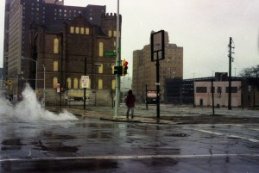Detroit Environmental Issues
• Test show no contamination in Detroit’s water supply
• Customers no longer advised to boil their water for drinking and cooking purposes
The Michigan Department of Environmental Quality (MDEQ) has lifted the boil water advisory for customers who were affected by low-water pressure. The low-water pressure resulted from a problem at the Water Works Park distribution facility operated by the Great Lakes Water Authority (GLWA). The areas which were affected by the advisory were: McNichols south to the Detroit River and Linwood east to Conner.
The Detroit Water and Sewerage Department (DWSD) received a statement released from GLWA today indicating that the most recent round of testing shows no bacterial contamination in Detroit’s water supply. Two rounds of multiple samples were tested by GLWA indicating the water meets the Safe Drinking Water Act. According to the statement:
“The second round of test results taken by the Great Lakes Water Authority (GLWA) related to the February 28, 2017, boil water advisory have come back clear. Given that both sets of test results have proven that there was nothing wrong with the water, GLWA has made the recommendation to the impacted communities that the boil water advisory can be lifted.”
The MDEQ standard for issuing a boil water advisory occurs when water pressure decreases to below 20 pounds per square inch (PSI). Detroit’s pressure never fell below 20 PSI, however, MDEQ issued the advisory as a precaution for the entire area served by the Water Works Park facility.
While the boil water advisory has been lifted, DWSD recommends that if water has not been used for six hours or more, water should run from the tap until it is cold and continue to run for an additional two minutes for fresh water.
While the malfunctioning equipment which caused MDEQ to issue a boil water advisory occurred at a GLWA-operated facility, DWSD appreciates the patience of Detroit customers during the water advisory.
If homes or businesses have no water service in the areas defined in this advisory, please call the DWSD emergency line at 313-267-7401.










